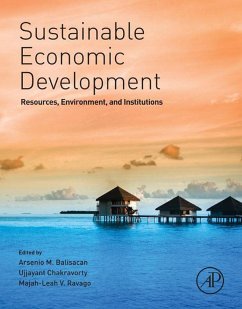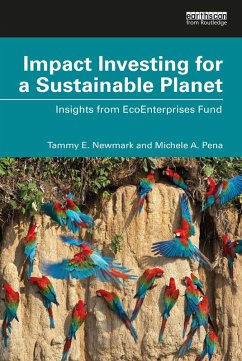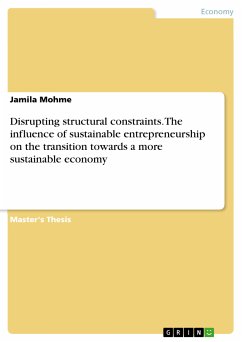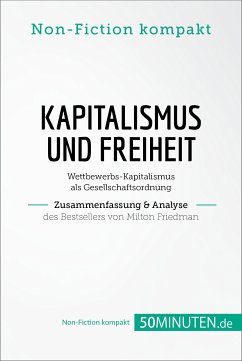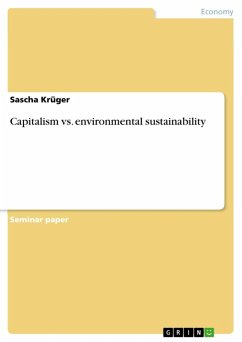
Capitalism vs. environmental sustainability (eBook, ePUB)
Versandkostenfrei!
Sofort per Download lieferbar
Statt: 18,95 €**
16,99 €
inkl. MwSt. und vom Verlag festgesetzt.
**Preis der gedruckten Ausgabe (Broschiertes Buch)
Alle Infos zum eBook verschenkenWeitere Ausgaben:

PAYBACK Punkte
0 °P sammeln!
Seminar paper from the year 2006 in the subject Business economics - Business Ethics, Corporate Ethics, grade: 1,7, University of Hamburg (Institut für Anglistik und Amerikanistik), course: Wirtschaftenglisch IV: Environmental Economics, language: English, abstract: Capitalism is a relatively old system. It has existed since the 15th century. It also has experienced several different developments over time. As a result, there has always been a dynamic process, which has been influenced by changes in society, policies, and technology: Beginning with the early capitalism, culminating into the e...
Seminar paper from the year 2006 in the subject Business economics - Business Ethics, Corporate Ethics, grade: 1,7, University of Hamburg (Institut für Anglistik und Amerikanistik), course: Wirtschaftenglisch IV: Environmental Economics, language: English, abstract: Capitalism is a relatively old system. It has existed since the 15th century. It also has experienced several different developments over time. As a result, there has always been a dynamic process, which has been influenced by changes in society, policies, and technology: Beginning with the early capitalism, culminating into the exalted capitalism, then achieving the free market economy, and these days a kind of sustainable capitalism. This paper concentrates on the relationship between capitalism and the environment. Since the 1970's and the 1980's experts have debated about this particular topic. Arguments range between views that are radical, romantic, rational, right-winged, and left-winged. When people are forming their views, they overlook that the generic conflict terms, "ecology" and "economy", are actually similar. The part "eco" originates from the Hellenic word "oikos" (meaning "house"). The parts "logy" and "nomy" descend from "logos" (meaning "doctrine") and "nomos" (meaning "law"). So, essentially people are talking and writing about a natural balance and operating efficiency. These are two similar goals. A company goes bankrupt when it does not meet its objects and so does the ecosystem. Although ecologists and economists often see each other very differently, they seem to have the same intentions regarding their systems. Instead of fighting against one another, they could learn from each other and realise economies (respectively ecologies) of scale. Furthermore, this paper discusses the presumptions of capitalism in relation to answering the following question: is there a possibility for a co-existence of the environmental and the capitalistic systems? The aim is to figure out the needs for change and evolution in the existing framework. Traditional views shall be analysed and working mechanisms underlined.
Dieser Download kann aus rechtlichen Gründen nur mit Rechnungsadresse in A, B, BG, CY, CZ, D, DK, EW, E, FIN, F, GR, HR, H, IRL, I, LT, L, LR, M, NL, PL, P, R, S, SLO, SK ausgeliefert werden.





